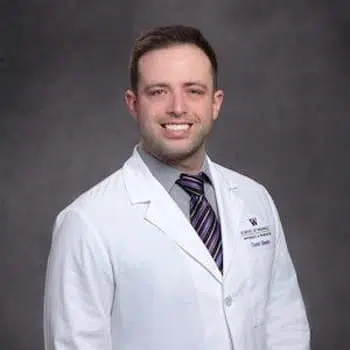Do You Have a Hydrocodone Addiction? – What to do about it
Written by Jonathan Strum
& Medically Reviewed by Dr. Conor Sheehy, PharmD, BCPS, CACP
Medically Reviewed
Up to Date
Updated 11/11/2022
Hydrocodone and other opioids contribute to thousands of overdoses in Ohio each year. Fortunately, help is available for hydrocodone abuse and addiction.
Hydrocodone is a prescription opioid typically used to treat short-term pain, but it can also be used for chronic pain in some cases. Although it is an effective painkiller, hydrocodone has a high potential for addiction.
Opioids like hydrocodone can be dangerous due to their addictive nature, and they can easily lead to an overdose when someone takes too much. These drugs work by rewiring the reward systems of the brain, causing a person to crave opioids and the pleasurable effects they can create. In severe cases of addiction, a person will put opioids above essential parts of life, such as social connection, sleep and food.
In recent years, the opioid epidemic has gained notoriety as a major public health issue in states like Ohio. Fortunately, help is available at professional addiction rehab facilities such as The Recovery Village Columbus.
Looking for addiction treatment in Columbus, Ohio or the surrounding areas? We have inpatient and outpatient facilities nearby and across the country ready to help.
Hydrocodone Abuse in Ohio
Since 2015, over 22,000 suspected overdoses have occurred throughout Columbus and the surrounding Franklin County. Many of these overdoses were due to the powerful synthetic opioid fentanyl, which caused 82.3% of Franklin County overdose deaths in 2019.
In the United States, an average of 223 people die each day due to substance abuse. Many of these deaths are attributable to illicit opioids as well as prescription painkillers like hydrocodone. The high rate of preventable deaths led the Drug Enforcement Agency to create the Operation 360 campaign, which recently expanded to Ohio — the 17th state to join the program. Known as Central Ohio 360, the campaign aims to curb violent crime and substance abuse throughout the state.
How Hydrocodone Addiction Happens
Hydrocodone is the generic name of a drug that appears in several different medications, including:
- Hycodan (hydrocodone bitartrate/homatropine)
- Lortab (hydrocodone/acetaminophen)
- Norco (hydrocodone/acetaminophen)
- Vicodin (hydrocodone/acetaminophen)
- Zohydro ER (hydrocodone extended-release)
Hydrocodone works by attaching to opioid receptors in the central nervous system, which are located in the brain, spinal cord and nerves throughout the body. Opioid receptors are typically involved in pain modulation; they allow pain signals to be felt or suppress them.
By attaching to and activating opioid receptors, hydrocodone causes euphoria and other pleasant feelings. These pleasurable effects can also cause someone to abuse the drug, but this behavior can quickly lead to addiction. Due to its addictive potential, hydrocodone is a Schedule II controlled substance.
Addiction usually begins after someone starts abusing hydrocodone, meaning they are using it in ways other than prescribed or taking it without a prescription. For example, if you are given a prescription for one tablet twice daily for five days but you take all tablets in two days, this is considered abuse.
Abusing an opioid like hydrocodone typically leads to dependence before addiction. Dependence is when a person’s body relies on a drug to function normally, leading to withdrawal symptoms when someone stops using the drug. Further opioid abuse can then lead to addiction, which involves compulsive drug-seeking behavior that damages other areas of a person’s life.
Common Signs of Hydrocodone Addiction
Signs of hydrocodone addiction can include physical, behavioral and psychological symptoms. Common symptoms include:
- Agitation
- Anxiety
- Chills
- Diarrhea
- Decreased motivation
- Fatigue
- Mood swings
- Slowed breathing
- Excessive tiredness
- Tremor
Why Is Hydrocodone Addictive?
Hydrocodone addiction is a long-term condition characterized by a compulsive urge to continue using the drug despite negative consequences. Hydrocodone can be addictive even when taken exactly as prescribed by the doctor. However, the risk of addiction increases when it is abused.
Continued hydrocodone use changes the chemistry of the brain, making a person need to take more of the drug to get the same effects. If they stop taking the drug, they are at high risk of experiencing withdrawal symptoms, which are often a major driver for addiction.
Addiction has several consequences, including negative impacts on a person’s career, friendships, relationships, financial stability and health. However, the biggest consequence is the risk of overdose. When a person overdoses on opioids, they may stop breathing because opioids slow down many automatic processes in the body. Overdose can result in coma or death.
Did you know?
Your insurance may cover the cost of treatment.
Hydrocodone Addiction Treatment in Columbus, Ohio
It is important to recognize hydrocodone addiction early and seek treatment, whether it’s for yourself or a loved one. Treatment programs will often include one or more of the following components:
- Detoxification: Medical detox is the process of medically supporting a person as their body eliminates drugs from its system. Medical support may involve the management of withdrawal symptoms, treatment of cravings and care for medical emergencies like seizures or dehydration.
- Addiction treatment: Addiction treatment should begin when a person is stabilized and no longer actively going through withdrawals. Addiction treatment programs can include inpatient, partial hospitalization, outpatient and intensive outpatient care. A credible treatment program should have a full continuum of care to personalize treatment to the patient’s needs.
- Maintenance treatment: Once the initial treatment is complete, an aftercare plan should be put into place to ensure that relapse does not occur. Relapse can happen at any point in the recovery process, but aftercare and maintenance programs can help reduce the chances of it occurring. Maintenance may involve peer support groups, alumni programs, routine check-ins, follow-up appointments and more.
The Recovery Village Columbus offers a full continuum of care that provides all of these services and more.
Ohio Resources for Opiate Addiction
Ohioans have many support services available for opioid addiction recovery. Residents of Columbus can use the city’s opioid crisis resource to learn more about the epidemic and access Naloxone, fentanyl test strips, education programs, hepatitis C testing, education programs and other valuable services. Other helpful resources include:
- The Netcare Access Crisis Hotline: 614-276-CARE (2273)
- The Opiate Crisis Line: 614-724-HOPE (4673)
- Support for family members of addicted loved ones in Ohio: Family of Addicts
- Free Narcan for Ohio residents: Harm Reduction Ohio
View Sources
The City of Columbus. “Columbus and Franklin County Suspected Overdose Encounters.” 2021. Accessed December 22, 2021.
U.S. National Library of Medicine. “Hydrocodone/Acetaminophen Package Insert.”DailyMed, May 2011. Accessed December 22, 2021.
Drug Enforcement Administration. “DEA To Announce Operation 360 Campaign T[…]ime In Central Ohio.” May 2020. Accessed December 22, 2021.
Kosten, Thomas; et al. “The Neurobiology of Opioid Dependence: I[…]tions for Treatment.” Addiction Science & Clinical Practice, July 2002. Accessed December 22, 2021.
Pathan, Hasan; et al. “Basic Opioid Pharmacology: An Update.” British Journal of Pain, 2021. Accessed December 22, 2021.
American Academy of Family Physicians. “Opioid Addiction.” May 2021. Accessed December 22, 2021.
Authorship


